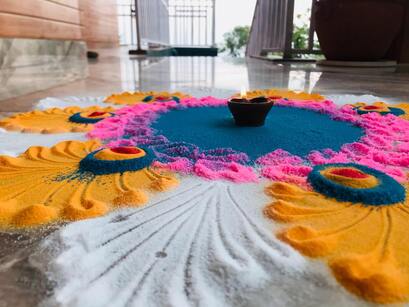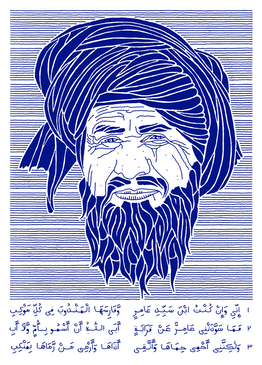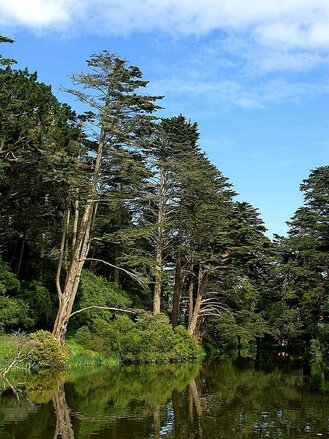|
It is such a delight to have been invited to be featured on The Beat, a poetry podcast from the Knox County Public Library!
Along with two of my poems, I recorded two linked sonnets in English from a public domain poet who was also an icon of the Bengal Renaissance: Michael Madhusudan Dutt. Choosing to read from the work of a nineteenth century poet from the non-west allows me to expand our imagination of who was writing in English in that period. It allows me to hint at the legacies and contradictions that shape literature in English—including colonialism and anticolonial resistance. It allows me to reflect on the ways in which the 'center' and the 'periphery' are unconsciously reproduced, still—such as in the bios of Dutt found online! I hope you enjoy these readings.
0 Comments
Transformative Power of Art Journal has kindly published my peer-reviewed article, "Arts-based Practices: Research and Transformation in the Academy" in its Volume 1, Issue 2 Winter 2023: individual transformation through the arts.
The article can be read in the digital journal here or is on academia.edu as well. Arts-based Practices: Research and Transformation in the Academy Abstract: As we move away from a materialist, objectivist, Cartesian-Kantian worldview to one based on the psycho-physical reality of psyche (human and nonhuman, collective and cosmic), the academic world must engage with the different ways in which we create and integrate knowledge and, indeed, must reconceptualize what it is to know. In this paper, I explore how art can be practiced as research, and its epistemic potential: what can art inquire into and what kind of knowledge might its practice and creation bring to the practitioner? I examine arts-based practices vis-à-vis participatory theories and argue that arts-based inquiries are utile in excess of representational or dualistic/disenchanted political and intellectual utilitarianism, and that they offer methodological resources for scholars to resacralize and transform our relationship to ourselves and the world. Hello all, I am sharing my talk at From Trauma to Catharsis: Performing the Asian Avant-Garde, a symposium hosted by the MFA Program at the California Institute of Integral Studies in 2014.
The talk is titled "Trauma of the Avant-Garde and Intercession of the Waters: A Future Possible." (On Academia.edu; on Humanities Commons CORE) In 2014, my research focused on the poetics of speech stemming from indigenous/earth-based traditions I was studying and engaged with. This talk arose from the tension I experienced while negotiating with the alienation and skepticism embedded in most understandings of the avant-garde. (Many strategies of the avant-garde have, of course, been coopted from indigenous contexts, after conveniently trimming away the complexity of the worldview within which these gestures live.) My burning question then was: Could the western avant-garde come in conversation with non-western, sacralizing ways of seeing? This was a couple of years before the vision I had of the ancestresses changed the trajectory of my research. But you will find in this talk some of the same borderlands concerns animating the later work, which utilized Anzaldúan frameworks. I believe a couple of sentences from here also make their way into the methodological discussion in my doctoral dissertation, "Claiming Voice, Vitality, and Authority in Post-secular South Asian Borderlands." "Homing Instinct," I am very pleased to say, has been published in volume 2 issue 2 of the online edition of the other side of hope, the UK’s first ever Literary Magazine of Sanctuary. Take a look. The long poem can be read in its entirety here.
In 2021, I needed to root deeply into both "home" and "migration." As I wrote, I connected not only to my experience, but also that of my great-grandparents, grandparents, parents. Ancestors and future generations. I wrote the first version of this poem for installation at the multidisciplinary art exhibition Rites of Passage: 20/20 Vision. In this early version, the poem was composed through prose lines. Gradually, to hone in the sharp music in the lines and to better tell its stories—the poem functions as a collective score—I found myself moving to a lineated form. I find that in writing a poem such as this, I myself am moulded, shaped. The YA movie The School for Good and Evil (based on books by Soman Chainani) gets something very right: when "good" assumes a moralistic, holier-than-thou stance, seeking to keep people in line and scapegoating/punishing those who fall out of (what has been prescribed institutionally as) the line, there is probably a version of "evil" masterminding the subtle inner corruption of "good"—its degeneration into conformism to ideology rather than a context-sensitive, empathetic responsiveness.
This workshop is offered as part of the Asian American Women Artists Association's End-of-Year Fundraising Auction. All proceeds will benefit AAWAA's programs and membership. An in-person group writing experience to connect with trees as the sacred elders of our planet, and open our imagination to their wisdom and inspiration. Monica Mody will guide participants in asking the trees what they would like to share, seeing the images that open up, and listening to tree-language and tree-rhythm. Participants will be invited to listen to their own modes of language while communing with trees. We meet at the Queen Wilhemina Tulip Garden at 12pm, Saturday, December 10, 2022. Bring writing materials, and optionally, any offerings you would like to make to tree spirits (such as water, milk, cornmeal, coins, alcohol), and a blanket to sit on. Registration: $75 For up to 16 participants. Duration: 2 hours and 15 minutes. Registration closes November 20, 2022.
As people of culture, we have to work hard to reclaim and reimagine our ancestral traditions, navigating histories and presents shot through with psychic shadows such as polarization, suppression of spiritual knowledges, structures and relationships of domination. When 'your blood is not in the game' (to quote a fellow healer and seer), these traditions are not yours to consume, commodify, cutify. Implying your full participation in traditions you don't carry is a way of tokenizing them. Centering yourself in cultural contexts that you are outside of is not true respect or appreciation—neither of these contexts, nor of those carrying these lineages. Educate yourself about the continuing fictions of colonialism and white supremacy. See through your own assumptions. Know the difference between cultural appreciation and cultural appropriation. Don't step into a place if you cannot stand there on earth both as a blessing and a responsibility.  Photo by Siraj Alam on Unsplash In revisiting "When Yoginis Appear With Animals: Animistic Relational Elements and the Non-Dual Matrix" to present at the Oct 6 ASWM Scholar Salon, I found myself thinking about some things:
1. Secular scholarship practises, often uncritically, historiography stripped of enchantment. What would it be like for us as historians and readers of history to be permeated with a sensing of our human past as filled with magic?—negotiations with the natural world? Instead of seeing our ancestors as imbued with the 'non-wild' subjectivity that secular-colonial historical writing would have us believe, what might we learn if we change our lens to one that that recognizes our ancestors practicing in relationship with the sacred, with nature? 2. It doesn't matter how the pathology in our cultural-ancestral stories got in. What matters is that we drop it here. What matters is that we choose to leave it behind, renewing the futures available. "With actions I take now, I change the past." —Andrea Hairston in Mindscape (quote from memory) 3. It is amazing how so many written accounts of events focus on masculine/patriarchal histories of war, conquest, domination. What about the feminine/matriarchal histories of cooperation? And, what about sage histories of wisdom and veneration? How do we recast the project of history? Which knowledges—through their transmission, integration, and revitalization—could help create life-affirming cultures? In the ancient and medieval Indian literatures I was reading or reading about, several narratives classed women—along with 'slaves,' elephants, horses, cows—as objects to be enslaved and traded—after wars; to gift to brahmins. I do not consent to this history. This history enrages me, makes me furious. I want to tear down and through patriarchal histories/narratives, and replace them with pasts that give dignity to women, to nature, to our inextricable connection with the alive earth. How much of these literatures reflect that age-old problem in scholarship: the collapse of context? 4. What would change in the present and future collective psyche of India if the transformational impulses at the root of this ancient civilization came to shape our imaginary in the form of living, extraordinary knowledge of located ecology? If the cultural histories we tell ourselves were to be informed by an understanding of our deeply intertwined-symbiotic relationship with the wild—women at the center of emergence? 5. Making lateral moves as a theoretician allows me to put forth claims that are yet to be accepted: claims that have arrived as insights. "Going outside the accredited realm of historiography means daring to be dubbed ahistorical." —Emma Pérez, The Decolonial Imaginary A few weeks ago, a Q&A with Rob McLennan was published as a supplement to my poems "Mouthfuls," "Spirit of Regeneration," "Alchemy," and "In Situ," which appear in the thirty-fourth issue of Touch the Donkey. The exchange can be read here.
Of course it's cool that so much research literature is now available online.
But my fingers had begun to tingle at the idea of chasing down this particular book accessible only in an out-of-the-way library—leafing through archives—the thrill of adventure!—when (sigh) I found an electronic copy I could download. |
Get updates of New blog postsconnect with me ON SOCIALSArchives
April 2024
|


 RSS Feed
RSS Feed